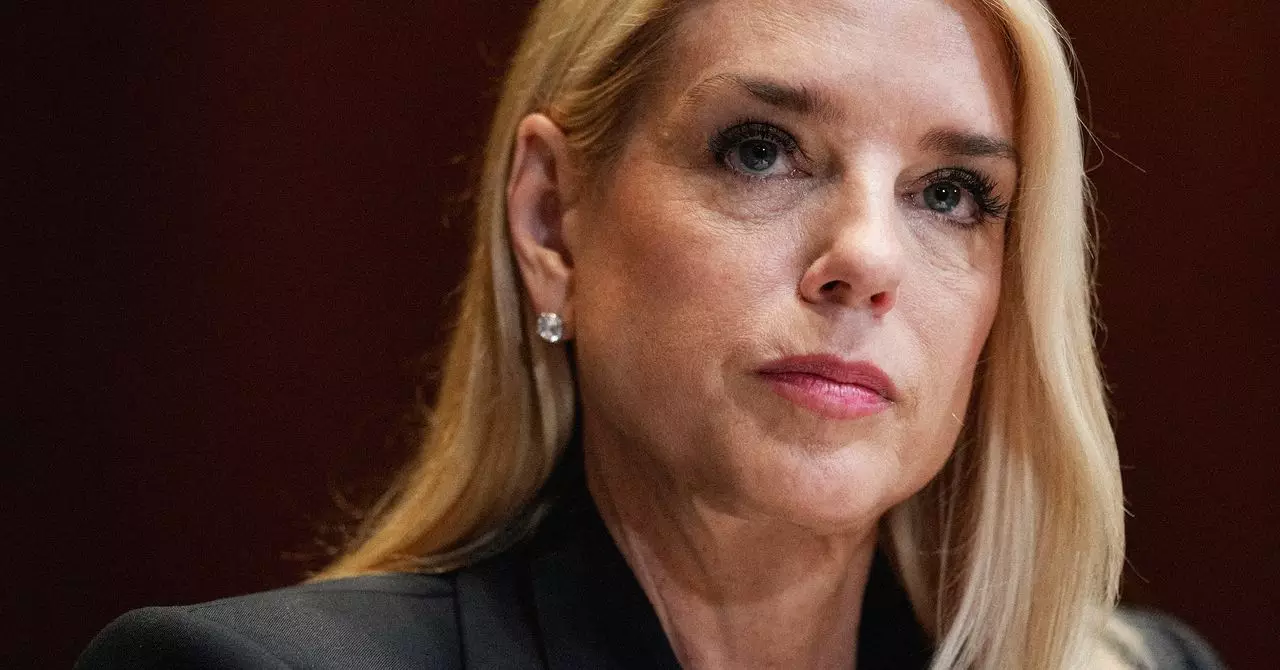In a landscape fraught with governmental watchdogs and national security concerns, major tech giants like Apple, Google, Microsoft, and Amazon find themselves navigating treacherous legal and diplomatic waters. While public discourse often highlights the rhetoric around TikTok’s alleged security risks and the federal ban, a deeper examination reveals a corporate strategy rooted in cautious compliance and subtle political alignment. The recently disclosed letters reveal these companies’ efforts to shield themselves from liability, effectively undercutting the intent of the U.S. government’s policies.
Instead of outright defiance, corporations like Google and Apple have adopted a diplomatic stance—declaring they have “incurred no liability”—a legal shield that buys them time and arguably, influence. Their responses, which include “irrevocably relinquishing claims” against the government, signal a nuanced balancing act. They aim to continue serving their users, preserve market share, and avoid legal repercussions, all while maintaining the appearance of cooperation. Such actions raise critical questions about corporate independence: Are these companies truly complying with governmental directives, or are they shaping the enforcement landscape behind closed doors? Their calculated legal rhetoric suggests a preference for preserving future negotiation leverage over outright confrontation, potentially prioritizing corporate interests over national security claims.
This duality demonstrates that in the realm of technological dominance, corporate loyalty may be less about adhering to government mandates and more about safeguarding long-term business interests, especially in a climate where public opinion and market position are heavily intertwined. The fact that companies received assurances of immunity and that government officials publicly emphasized ongoing negotiations signals that corporate entities are deeply embedded in political machinations, even if indirectly. Such interactions undermine the perception of a clear-cut legal enforcement system and expose the complex web of influence that interconnects the tech sector and political institutions.
The Role of Legal Evasion and Strategic Ambiguity in Shaping Policy Outcomes
A striking aspect of this saga is how the legal landscape is manipulated through strategic ambiguity and executive discretion. The federal ban on TikTok isn’t merely a straightforward enforcement—it’s a showcase of executive authority, with Attorney General Pam Bondi and her predecessors wielding assertions of immunity to distort the original legislative intent. This pattern isn’t novel in American politics but raises fundamental constitutional questions: Can the executive branch indefinitely delay enforcement of laws passed by Congress, especially when national security is invoked as justification?
Furthermore, these actions highlight an alarming disconnect between legislation and practice. The law explicitly seeks to curb TikTok’s operations citing Chinese links as a threat, yet the actual enforcement is deliberately hamstrung by legal statements and executive shieldings. The use of letters that ‘relinquish claims’ creates a legal buffer, effectively nullifying the law’s intended impact for an extended period. This de facto legal loophole exemplifies how authority can be wielded more as a political tool than through adherence to law.
From a broader perspective, this approach cultivates an environment where corporate entities can operate with impunity, provided they send the right diplomatic signals and receive assurances. It fosters a clandestine form of policy implementation—one where legislative authority is undermined by executive and corporate negotiations. Such reality not only questions the efficacy of the legislative process but also underscores the influence large tech companies exert in shaping the rules of digital engagement—rules they help navigate by negotiating behind the scenes rather than through transparent legal processes.
The Power Play: Tech Giants as Political Actors
What emerges from these revelations is a picture of tech giants not just as service providers but as political actors wielding considerable influence over policy outcomes. Their strategic silence, explicit legal assurances, and ongoing negotiations suggest they are actively shaping the regulatory environment to serve corporate interests discreetly. This, in turn, raises concerns about whose interests truly dominate in the technology-policy arena.
The rapid reappearance of TikTok on app stores, despite initial restrictions, is a testament to the power technology companies hold over enforcement outcomes. The companies’ assurances of compliance—sometimes framed as legal immunity—provide them with a strategic advantage, enabling them to continue operating under the radar while deflecting blame or scrutiny. Their ability to negotiate with government officials indicates a level of influence that belies their public persona—often seen as neutral service providers—highlighting their significant role in the geopolitical chess game between the U.S. and China.
Moreover, the willingness of these corporations to accept ambiguous legal interpretations and extended negotiations suggests a pragmatic approach—one that prioritizes long-term market dominance over short-term compliance. It’s a tacit acknowledgment that in the high-stakes world of technology dominance, legal and political boundaries are fluid, shaped by negotiations that are often hidden from public view. This power dynamic questions the very structure of regulatory enforcement, making it clear that in the digital age, influence and negotiation trump strict legality and transparency.
The ongoing saga with TikTok underscores a new era of corporate-political symbiosis, where the lines separating law, policy, and commerce are blurred. As these companies continue to manipulate legal mechanisms to their advantage, a broader question arises: will the public ever truly understand how much sway these tech behemoths hold over national policy? Perhaps the real power lies not in legislation but in the behind-the-scenes deals that quietly determine the future of digital regulation.

